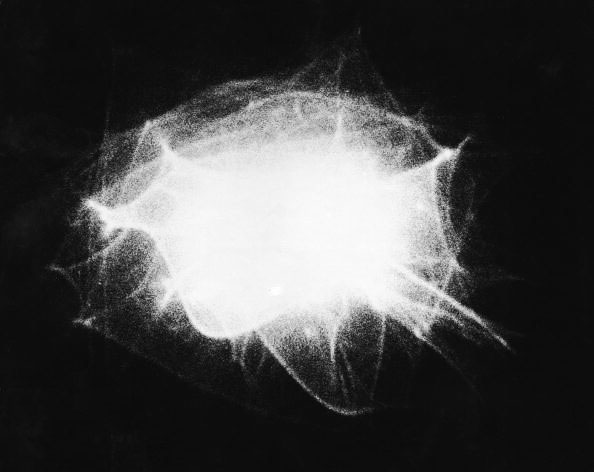
“When the world of clear and articulate objects is abolished, our perceptual being, cut off from its world, evolves a spatiality without things. This is what happens in the night. Night is not an object for me; it enwraps me and infiltrates through all my senses, stifling my recollections and almost destroying my personal identity. I am no longer withdrawn into my perceptual look-out from which I watch the outlines of objects moving by at a distance. Night has no outlines; it is itself in contact with e and its unity is the mystical unity of the mana. Even shouts or a distant light people it only vaguely, and then it comes to life in its entirety; it is pure depth without foreground or background, without surfaces and without any distance seperating it from me. All space for the reflecting mind is sustained by thinking which relates its parts to each other, but in this case, the thinking starts nowhere.”
Maurice Merleau-Ponty, Phenomenology of Perception, 1945
“Night science, on the other other hand, wanders blindly. It hesitates, stumbles, falls back, sweats, wakes with a start. Doubting everything, it feels its way, questions itself… it is a workshop of the possible… hypotheses take the form of vague presentiments… thought proceeds along sinuous paths, tortuous streets… the mind frets in a labyrinth, deluged with messages.”
François Jacob, The Statue Within, 1987
“The night is not a black mass that stops our sight on the surface of our eyes; our look goes out into the night which is vast and boundless. The sense of sight can be taut and acute in the depths of the dark. The night is not a substance but an event; it pervades a space freed from barriers and horizons. It extends a duration which moves without breaking up into moments; night comes incessantly in a presence which does not mark a residue as past nor outline a different presence to come.”
Alphonso Lingis, The Imperative, 1998
“Throughout the course of the generations
men constructed the night.
At first she was blindness;
thorns raking bare feet,
fear of wolves.
We shall never know who forged the word
for the interval of shadow
dividing the two twilights;
we shall never know in what age it came to mean
the starry hours.
Others created the myth.
They made her the mother of the unruffled Fates
that spin our destiny,
they sacrificed black ewes to her, and the cock
who crows his own death.
The Chaldeans assigned to her twelve houses;
to Zeno, infinite words.
She took shape from Latin hexameters
and the terror of Pascal.
Luis de Leon saw in her the homeland
of his stricken soul.
Now we feel her to be inexhaustible
like an ancient wine
and no one can gaze on her without vertigo
and time has charged her with eternity.
And to think that she wouldn’t exist
except for those fragile instruments, the eyes.”
JL Borges, Historia de la Noche, 1977
image: night bombing pattern (1943)